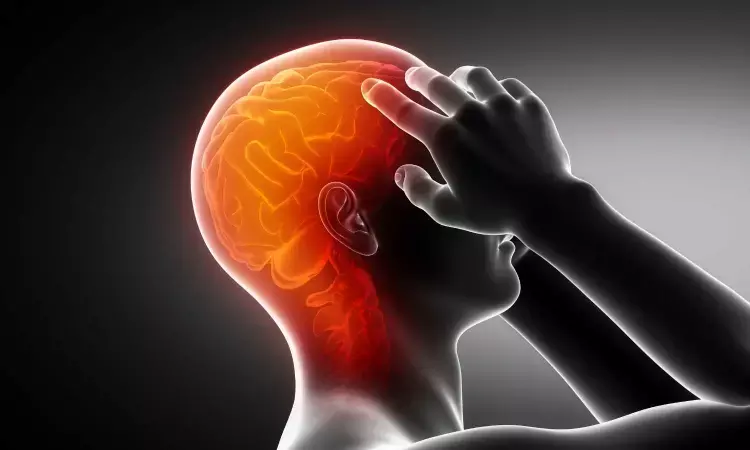- Home
- Medical news & Guidelines
- Anesthesiology
- Cardiology and CTVS
- Critical Care
- Dentistry
- Dermatology
- Diabetes and Endocrinology
- ENT
- Gastroenterology
- Medicine
- Nephrology
- Neurology
- Obstretics-Gynaecology
- Oncology
- Ophthalmology
- Orthopaedics
- Pediatrics-Neonatology
- Psychiatry
- Pulmonology
- Radiology
- Surgery
- Urology
- Laboratory Medicine
- Diet
- Nursing
- Paramedical
- Physiotherapy
- Health news
- Fact Check
- Bone Health Fact Check
- Brain Health Fact Check
- Cancer Related Fact Check
- Child Care Fact Check
- Dental and oral health fact check
- Diabetes and metabolic health fact check
- Diet and Nutrition Fact Check
- Eye and ENT Care Fact Check
- Fitness fact check
- Gut health fact check
- Heart health fact check
- Kidney health fact check
- Medical education fact check
- Men's health fact check
- Respiratory fact check
- Skin and hair care fact check
- Vaccine and Immunization fact check
- Women's health fact check
- AYUSH
- State News
- Andaman and Nicobar Islands
- Andhra Pradesh
- Arunachal Pradesh
- Assam
- Bihar
- Chandigarh
- Chattisgarh
- Dadra and Nagar Haveli
- Daman and Diu
- Delhi
- Goa
- Gujarat
- Haryana
- Himachal Pradesh
- Jammu & Kashmir
- Jharkhand
- Karnataka
- Kerala
- Ladakh
- Lakshadweep
- Madhya Pradesh
- Maharashtra
- Manipur
- Meghalaya
- Mizoram
- Nagaland
- Odisha
- Puducherry
- Punjab
- Rajasthan
- Sikkim
- Tamil Nadu
- Telangana
- Tripura
- Uttar Pradesh
- Uttrakhand
- West Bengal
- Medical Education
- Industry
Higher dose of Dexamethasone with metoclopramide may not provide additional relief to migraine patients in ED

USA: A dose of dexamethasone greater than 4mg when added to 10mg IV metoclopramide is unlikely to benefit patients in the emergency department (ED) with migraine, a recent study published in Neurology has shown.
Dexamethasone is a common steroid that is often used for migraine treatment in the EDs. The study by Benjamin W. Friedman and colleagues suggested that the dose of dexamethasone may not significantly impact the rate of sustained headache relief when co-administered with metoclopramide.
Key findings from the study include:
- The study was a randomized, double-blind trial that included adults with migraines meeting the International Classification of Headache Disorders (ICHD3) criteria. The participants rated their headache intensity as moderate or severe. Neurology
- A total of 209 participants were randomized into two groups: one received dexamethasone 4 mg intravenously along with metoclopramide 10mg IV, and the other received dexamethasone 16 mg IV along with metoclopramide 10mg IV.
- The primary outcome was sustained headache relief, while secondary outcomes included headache relief within two hours and the number of headache days during the following week.
- The results showed that the rate of sustained headache relief was 34% in the low-dose group (4mg dexamethasone) and 41% in the high-dose group (16 mg dexamethasone). However, the difference was not statistically significant.
- Headache relief within two hours occurred in 74% of the low-dose group and 78% of the high-dose group, with no significant difference.
- Both groups reported a median of 2 headache days during the week after ED discharge, with no significant difference in headache frequency.
In summary, the study indicates that when combined with 10mg IV metoclopramide, doses of dexamethasone greater than 4 mg are unlikely to provide additional benefits for patients with migraines in the ED. The findings suggest that a higher dose of dexamethasone does not significantly impact sustained headache relief, headache relief within two hours, or the number of headache days in the week following ED discharge.
Reference:
Friedman, B. W., Solorzano, C., Kessler, B. D., Martorello, K., Lutz, C. L., Feliciano, C., Adler, N., Moss, H., Cain, D., & Irizarry, E. (2023). Randomized trial comparing low- vs high-dose IV dexamethasone for patients with moderate to severe migraine. Neurology, 10.1212/WNL.0000000000207648. https://doi.org/10.1212/wnl.0000000000207648
Dr Kamal Kant Kohli-MBBS, DTCD- a chest specialist with more than 30 years of practice and a flair for writing clinical articles, Dr Kamal Kant Kohli joined Medical Dialogues as a Chief Editor of Medical News. Besides writing articles, as an editor, he proofreads and verifies all the medical content published on Medical Dialogues including those coming from journals, studies,medical conferences,guidelines etc. Email: drkohli@medicaldialogues.in. Contact no. 011-43720751


